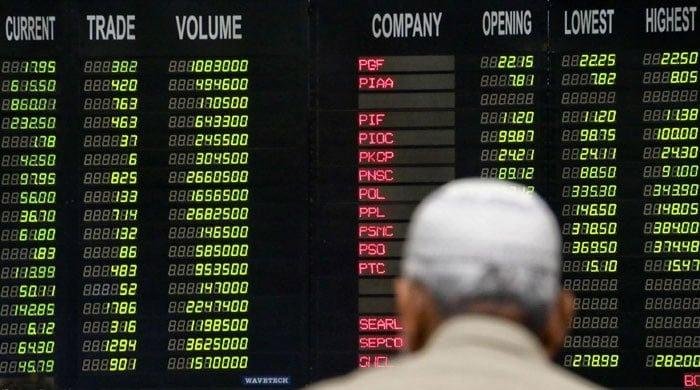Stock Market
The Pakistan Stock Exchange (PSX) witnessed a remarkable surge on Thursday, reaching an all-time high as investor confidence soared following positive developments regarding the country’s economic outlook.
The bullish sentiment was primarily driven by reports suggesting that the International Monetary Fund (IMF) was conditionally prepared to approve the government’s circular debt management plan.
In addition to the IMF’s reported willingness to support Pakistan’s financial restructuring, investors were further encouraged by ongoing discussions about the privatisation of state-owned enterprises (SOEs) and the potential reduction of industrial power tariffs. These factors contributed to the strong upward momentum in the market, leading to a historic rally.
The benchmark KSE-100 Index of the PSX recorded an intraday high of 119,421.81 points, marking an impressive gain of 1,447.79 points, or 1.23%. Even at its lowest point of the day, the index remained in positive territory at 118,525.00, reflecting an increase of 550.98 points, or 0.47%, compared to the previous closing level of 117,974.02.
Prime Minister Shehbaz Sharif welcomed the stock market’s unprecedented rise, celebrating the achievement of the 119,000 mark for the first time in Pakistan’s history. He attributed the positive performance to the government’s economic policies over the past year, emphasizing that the administration’s efforts had fostered a more conducive environment for business and investment.
The prime minister further noted that the stock market’s gains reflected growing confidence among traders and investors in the government’s financial strategy.
Market analysts and financial experts also weighed in on the development. Ahfaz Mustafa, CEO of Ismail Iqbal Securities, highlighted the technical aspect of the rally, stating that the new high prompted technical traders to initiate fresh long positions. He added that the combination of IMF-related news and progress on resolving circular debt issues provided investors with renewed optimism.
Investor sentiment was further strengthened by reports that the IMF had given Pakistan approval to borrow Rs1.25 trillion ($4.5 billion) from domestic banks.
The move, intended to tackle the country’s circular debt problem, was significant because it allowed Pakistan to address financial challenges without adding to its official public debt stock. The development acted as a key catalyst, attracting institutional and retail investors to blue-chip stocks, thereby pushing the market to new record levels.
The ongoing bullish trend was also supported by the government’s auction of market Treasury Bills (T-bills) on Wednesday, which raised Rs392 billion. Although this amount fell short of the Rs800 billion target and was lower than the Rs513 billion maturity amount, it still contributed to overall market stability.
According to the State Bank of Pakistan (SBP), the cut-off yields on Treasury bills remained largely stable, except for the 12-month paper, which saw a modest increase of 26 basis points (bps) to 11.8999%.
The yield on the one-month T-bill stood at 12.0498%, while the three-month paper remained unchanged at 11.8242%. The six-month T-bill also remained steady at 11.6699%.
This latest surge in the stock market marks the fifth consecutive session of gains, with the rally being primarily led by energy and banking sector stocks. As investor confidence continues to build, the market appears to be on a strong upward trajectory, reflecting broader optimism regarding Pakistan’s economic stability and future growth.










